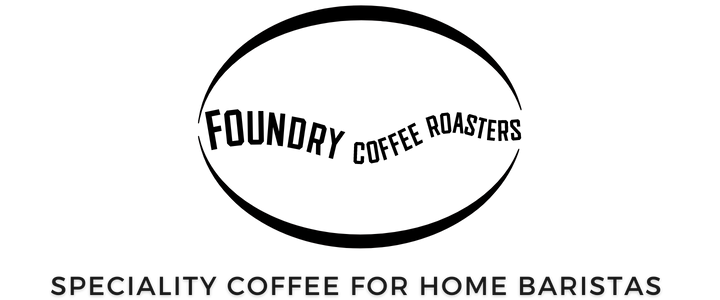-
Buy Coffee
-
Buy Other Stuff
-
Everything Else
ORDERS PLACED NOW WILL BE SHIPPED ON MONDAY 9th FEBRUARY - (more info here)
July 03, 2022
As you know, we’re not keen on blending coffee (read about that here if you missed it). Instead, we’re firm believers in 100% single origin speciality coffee beans. But what does that actually mean?
For us, the term ‘single origin’ can be thought about in two ways.
Firstly, a specific coffee ‘lot’, produced by a particular farm, is the easiest illustration of single origin coffee. Maybe one area of the farm is dedicated to growing some rare varietal, or perhaps some of the coffee is processed using a different processing method.

Diego Samuel Bermudez's farm produces several single origin lots.
Each of these lots is processed separately, either on the farm itself, or in a nearby facility. Each of the resulting lots are what we would refer to as single origin speciality coffee beans.
Of course, some farms only grow one varietal, and they process it all in the same way. This farm produces one single origin lot. Even if they grow numerous varietals on the same farm, as long as it's all harvested and processed together - it’s still one lot of single origin coffee.
Perhaps the next year, they decide to split the crop and process half as natural coffee, half as washed coffee. Now they are producing two single origin lots. Two distinctive lots from the same place.
Secondly, ‘single origin’ can be used to describe lots which are produced by a particular washing station or processing facility. These lots could be made up of coffee from many farmers, but we still consider them to be single origin lots. Why?
The coffee all originates in a specific geographical area, it’s usually made up of the same varietals, grown on the same kind of land, harvested at the same time, using similar farming methods and seeing the same weather conditions. In fact, often the only difference is in respect of the legal ownership of the small plot of land where the coffee grew.

The Biftu Gudina washing station produces single origin lots from hundreds of local co-operative members.
Lots are distinguished from each other as a result of changes in the processing approach, or by other factors, like when or where the coffee was harvested, for instance.
In this example, we tend to consider the washing station to be the ‘producer’ of the lot, but each lot produced is still a single origin lot.
A common misconception is that single origin relates to homogeneity, rather than place, and this is frequently what’s going on when you see people (typically roasters) say things like ‘all coffee is blended really’.
This weak argument is employed to justify a roasters decision to mix two or more coffees together to create a blend. The fact that these blend components may have been harvested thousands of miles and several months apart from each other is usually omitted - but equivalence with natural variations we see within a single origin is implied nonetheless.
So, what is the big deal? Why is single origin speciality coffee so important?
For us, we want to honour the huge amount of work that goes into producing high-quality coffee. We see our role as seeking out those exceptional single origin lots and, through our roasting, revealing the hard work of all the people involved in producing them. We believe that any preference for flavour or brewing method can be satisfied with a well-chosen, well roasted, single origin coffee. (You can read more about why we think that here).
As a roaster, our job is not to create or invent things. Our job is to realise potential and celebrate the hard work that has already been done in distant lands, by mother nature and by many skilled hands.
Single origin speciality coffee is exciting, seasonal and all about the producers. That’s why we love it, and that’s why we wont work with anything else.
